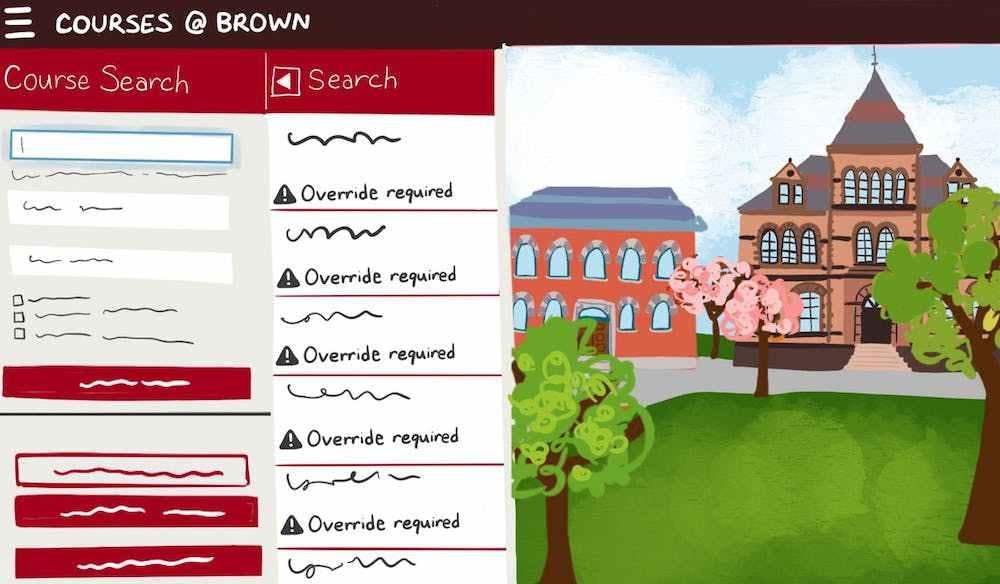Scrolling down far enough under any concentration on Courses@Brown, students might encounter 2000-level courses — graduate level courses — for which they are not technically eligible. Still, many undergraduate students take graduate courses to use for their undergraduate degree or simply out of interest.
Cedric Sirianni ’25, a computer science concentrator, took CSCI 2390: “Privacy-Conscious Computer Systems” this fall. He registered for the class because of his interest in computer systems and the course’s professor, Assistant Professor of Computer Science Malte Schwarzkopf.
Although the course is graduate-level, Sirianni estimated that only 40% of the class consisted of graduate students. “There’s so much to learn from people with more experience and knowledge,” he wrote in an email to The Herald.
For the computer science concentration, undergraduates are encouraged, but not required, to take 2000-level courses for which they have satisfied prerequisites, according to Brown’s Computer Science pathway website.
Students who have taken 2000-level courses at Brown told The Herald that gaining a spot required little work. They emailed professors in advance of registration, and were given override codes and permission to join the class.
Although Sirianni found the material challenging and at times overwhelming, he noted that professors and TAs understand that students are at various levels.
Mason Zhang ’25, who has also taken multiple graduate-level courses, agreed.
“It was definitely intimidating at first to be surrounded by graduate students, but as we got to know each other we had many interesting discussions,” Zhang wrote in an email to The Herald.
Zhang, who is double-concentrating in computer science and philosophy, has taken four graduate courses in total — two in philosophy, one in comparative literature and one in computer science — and he said he’s not done yet.
He added that he has taken graduate-level courses for multiple reasons, whether it was to experience a class with a certain professor or challenge himself in a seminar format. The amount of undergraduate students has varied across each course, but class composition has typically ranged from half to all graduate students.
“Grading is a secondary focus in many graduate courses; the emphasis is on learning, and in so many ways you get out what you put into the course,” Sirianni wrote.
For the course CSCI 1810: “Computational Molecular Biology,” another section is offered for graduate students — CSCI 2810: “Advanced Computational Molecular Biology,” according to Sorin Istrail, professor of computer science and computational and mathematical sciences.
Istrail’s students in the graduate-level course are required to complete all of the undergraduate material in addition to a project designing new software. Although the course is open to undergraduate students, “very rarely are there undergraduate students that request to be considered for the graduate credit,” Istrail wrote in an email to The Herald.
Istrail described his “pipeline of brilliance,” where he encourages students to take certain undergraduate courses in computational biology, eventually working their way up to a graduate course.
“Exceptionally strong students need challenges to learn more and such graduate credit projects are the right way for them to advance their knowledge and experience,” Istrail wrote.
Both Sirianni and Zhang said they plan on taking more graduate-level courses but have not yet decided on attending graduate school.
“Having graduate students as peers helped me increase the thoroughness of my work, but it also didn’t change my fundamental interest in the topics,” Zhang wrote. “Being able to talk about term paper ideas was very interesting, as some graduate students brought a lot of expertise and passion.”
For students interested in advancing and expanding their studies, the University further offers a concurrent degree program that allows students to combine their last year or two of undergraduate study with graduate study.





